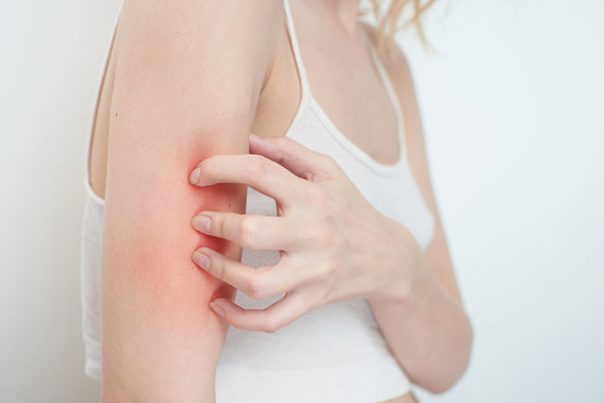
Pemiphigus – causes, side effects and treatments at NaturalPedia.com
Wednesday, June 27, 2018 by Janine Acero
http://www.naturalpedia.com/pemiphigus-causes-side-effects-and-treatments-at-naturalpedia-com.html

Pemphigus refers to a group of chronic, relapsing autoimmune diseases that cause blisters and lesions of the skin and mucous membranes. It commonly affects middle-aged to older adults.
All forms of pemphigus cause painful blisters and lesions on the outer layer of the skin (epidermis). Some types of pemphigus include:
- Pemphigus vulgaris (the most common type)
- Pemphigus vegetans
- Pemphigus foliaceus
- Paraneoplastic pemphigus
- Immunoglobulin A (IgA) pemphigus
Autoimmune diseases occur when the immune system mistakenly attacks healthy cells in the body. In pemphigus, antibodies attack the healthy skin and mucous membranes. These antibodies act against the proteins in the skin, called desmogleins, which play a role in skin cell adhesion. When desmogleins are attacked, the skin cells get separated from each other, which causes fluid buildup between the skin layers. This leads to the formation of blisters.

Known symptoms, risk factors for pemphigus
The hallmark symptom of pemphigus is the appearance of blisters on the skin, as well as on the mucous membrane. These usually appear on the face and scalp and spread to the mouth, nose, throat, anus, and the genitals.
People of Jewish, Indian, and Mediterranean origins have a higher risk of the condition. Adolescent girls are more often at risk than adolescent boys.
Body systems harmed by pemphigus
Pemphigus could lead to complications such as loss of most of the epidermis if left untreated. Before the introduction of effective therapy, most patients with pemphigus died within two years.
Other complications associated with pemphigus include:
- Skin infection
- Sepsis
- Psychological and emotional stress due to the skin condition
- Dangerous side effects due to some medications
Food items or nutrients that may prevent pemphigus
While there are no specific foods or nutrients that can help prevent pemphigus, certain food items should be avoided, such as:
- Acidic and spicy foods – Acidic and spicy foods like citrus fruits and juices, tomato products, hot peppers, salsa, curries and other heat-inducing chemicals in these foods can be very painful when they come into contact with your mouth blisters.
- Onions and garlic – Foods in the onion and garlic family, including chives, leeks, and shallots, may contribute to pemphigus in some cases. These foods contain a compound called thiols, a chemical that is also present in medications that induce pemphigus.
- Tannins – A medication called penicillamine contains tannins and can produce pemphigus-like symptoms in some people. Tannins can be found in dark-colored foods and drinks, including red wine, soft drinks, berries, grapes, eggplant, to name a few.
- Phenols – Phenol is another term for carbolic acid, a compound that is naturally occurring in some foods and added to others in synthetic form. Tomatoes, potatoes, mangoes, and artificial sweeteners contain pinene, a type of phenol, which can worsen pemphigus symptoms.
- Hard and crusty foods – Hard, sharp or crusty foods like potato chips or crusty bread can scrape against your mouth and throat, which can tear the blisters open and leave you in more pain and make you more susceptible to infection.
Treatments, management plans for pemphigus
Treatment options for pemphigus include:
- Corticosteroids – a common treatment for pemphigus
- Immunosuppressants such as azathioprine and methotrexate
- Biological therapies such as rituximab, a new drug that controls the white blood cells responsible for producing pemphigus antibodies
- Other medications, such as dapsone and intravenous immunoglobulin, may also be used.
If you want a more natural approach, there are some home remedies such as honey, oatmeal, tomato pulp and aloe vera, that may help treat any skin problem.
Where to learn more
- Dry Skin Brushing Improves Skin Health
- Natural Skin Care is Right at Home
- Castor oil is great for thickening and regrowing hair, eyelashes and eyebrows
- 3 Miracle Ingredients You Need to Detox Your Skin
- Top 10 Hidden Allergy Triggers In Your Home
Summary
Pemphigus is a general term for a group of autoimmune diseases that cause blisters and lesions of the skin and mucous membranes. It commonly affects middle-aged to older adults.
All forms of pemphigus cause painful blisters and lesions on the epidermis and mucous membranes. The most common type is pemphigus vulgaris.
Pemphigus commonly affects the mouth, nose, throat, anus, and the genitals, and may be life-threatening if left untreated.
Sources include:
Tagged Under: Tags: Pemiphigus





